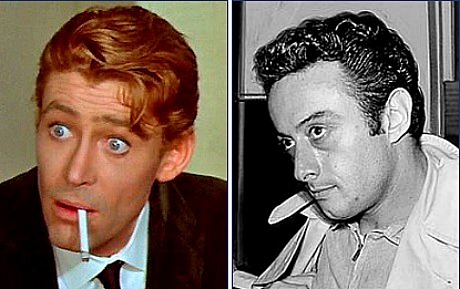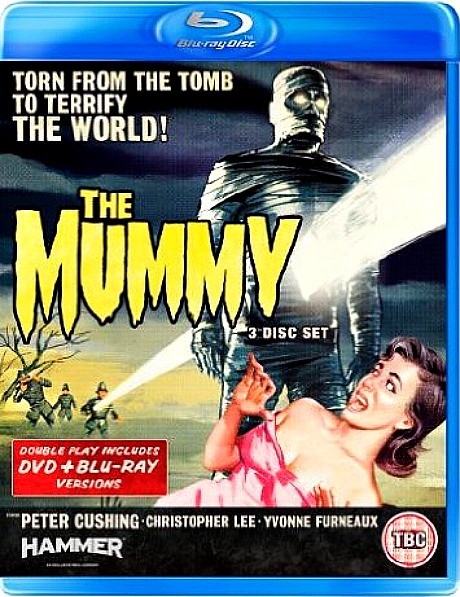After six years of absolute loyalty, I’m ready to bail on the iPhone. I quite like the size, luminosity and reported speed of Samsung’s Galaxy Note 3, and am figuring Samsung is on the stick better than Apple these days. I almost jumped earlier this month but I don’t want to leave behind those familiar iPhone apps. But Apple has become a caretaker company — it’s no longer the place it was under Steve Jobs — and I want a phablet, dammit. I’ve read that the iPhone 6, due either next May or or sometime during the summer (or perhaps next fall), will be “jumbo” or close to Galaxy 3-sized. But I’ve also read the following: “Apple puts a ton of effort into keeping its devices pocketable and usable with one hand, [and so] the overall size of the iPhone 6 is likely going to be much smaller than the Galaxy Note 3. It may feature a larger screen than the iPhone 6 but we expect Apple to thin out the bezels and keep the size change to a minimum.” There’s also a report from BGR that the iPhone 6 will be bigger “but not as big as…Samsung’s Galaxy Note 3.” If the iPhone 6 re-design seems too small or cautious, I’m gone. I’m sick of Apple’s timidity.
 Jeffrey Wells
Jeffrey Wells
“Egg Noodles and Ketchup”
Toward the end of the 1986 Academy Award telecast Earl W. Wallace and William Kelley were handed the Best Original Screenplay Oscar for co-authoring Witness, the 1985 Peter Weir film starring Harrison Ford and Kelly McGillis. When he got to the mike, Wallace said “I have a sneaking suspicion that my career just peaked.” 25 years later Colin Firth said almost exactly same thing when he picked up his Best Actor Oscar for The King’s Speech. And here’s The Wolf of Wall Street‘s Jonah Hill saying roughly the same thing about a week ago. Wallace, it turned out, was speaking the truth. Perhaps Firth was also — who knows? But Hill, 30, has loads of great work ahead of him. He’s just beginning so the egg noodles and ketchup remark (an allusion to the diminished quality of life that Ray Liotta‘s Henry Hill is coping with at the end of Goodfellas) doesn’t wash.
Get More:
Jonah Hill, Movie Trailers, Movies Blog
L.A. Vice Squad Bust In ’62
Four days ago the L.A. Times opinion page posted a short recollection piece by novelist and former L.A. cop Joseph Wambaugh. It’s about Peter O’Toole and Lenny Bruce getting pulled over by the fuzz a half-century ago after attending an illegal after-hours club that offered drugs and prostitute services. A petty, nickel-and-dime bust by today’s standards but this was 1962, when the country was still vaguely in the grip of prudish Eisenhower-era values. O’Toole was in town to do interviews for the then-upcoming Lawrence of Arabia, which no one had yet seen. Anyway it’s a good story. I love the idea of Bruce and O’Toole enjoying a late-night drink and a toke together and basically being up to no good. My kind of rambunctious company, even though both were known to be judgmental pricks on occasion. (Thanks to Todd McCarthy for the link.)

(l. Peter O’Toole; (r.) Lenny Bruce.
Don’t Look At The Camera
This new Miley Cyrus video is a profoundly flat experience. That whitewall pixie haircut obviously makes her look boyish and asexual. Okay, a bit dykey. But the main problem is her constant eyeballing of the lens, which for me is an instant death zap. Eye contact is basically a straightforward “hello, I’m open, come on in and we’ll see what happens.” But the essence of erotic intrigue is about wanting but not quite having that front-door access. Intimacy and eroticism is about hair aroma, sounds, secretions, close proximity, body warmth, touch, etc. It’s about being in a cave. You’re not trying to reach me with eye contact. We’re not addressing each other. I’m not there, you’re not there. Eye contact is for one-on-one chats at Starbucks or in a bar or in a kitchen. Or for job interviews. 99% of the time standard fourth-wall rules forbade the great exotic actresses of the ’20s, ’30s, ’40s, ’50s and ’60s to make eye-contact with movie cameras. This discipline resulted in a “restricted access” vibe that is/was 15 times hotter than anything in this video.
Coens Need To Go Dumber, A Bit Sillier
It suddenly hit me five minutes ago that director-writers Joel and Ethan Coen (Inside Llewyn Davis, A Serious Man, No Country For Old Men) need to go a little dumber and sillier for their next film. They obviously do this from time to time (Burn After Reading, Intolerable Cruelty, The Big Lebowski). I happen to regard Inside Llewyn Davis as a kind of glum, sardonic comedy. Every time I watch it (five times now) I go into a kind of serene LQTM mode. I’m just thinking that after the grayish, downhearted, “God more or less hates me and my life is constantly frustrating and depressing” vibes in ILD and A Serious Man (True Grit was more of an adaptation vacation than a deep-down Coen Brothers film) that they need to joke it up a bit more on their next outing. They probably know this better than I. A little change-up for the fans. Can’t hurt.
Bellowing Psychopath
The kids and I caught a 4:30 showing of The Wolf of Wall Street today at Leows 34th Street. A couple of HE people had said “see it with a paying audience and you’ll realize that this really is the new Scarface — people are mostly getting off on the insane manic humor, and very, very few are drawing any moralistic or metaphorical message whatsoever.” It was Jett’s second viewing, Dylan’s first. But right away there was trouble from a big black guy sitting a couple of seats to Dylan’s right. This dude wasn’t just talking all through the film — he was broadcasting his line-by-line, scene-by-scene commentary to the entire front section of the theatre.

When Dylan asked him why he was talking so much and where are his manners, the guy was indignant…”I’m enjoying myself!” The guy’s wife or girlfriend was trying to get him to chill also, but he was off on his own cloud. There was no reaching him, no guilt-tripping, no winning through persuasion or threat — he was (and probably still is at this very moment) a stone sociopath, a complete animal…gone.
We all know that African-American culture has always accepted talking during films, especially in New York. As manners have decreased and society has devolved in recent years incidents like today’s have probably increased. It has always seemed to me that theatre talkers have a certain under-educated je ne sais quoi with a vaguely alcoholic air. They never seem to be executive job material, I know that. I also know that the vast majority of New York theatre talkers I’ve run into in the past seem to be Swedish, Danish, Norweigan or Finnish. Have others noticed this?
Wolf Engages With Commoners
Last night HE’s New Orleans correspondent Dave DuBos wrote the following after catching The Wolf of Wall Street: “I thought the film was a hilariously dead-on satire. But when the lights came up, two women sitting next to me (I didn’t know them), one in her 30s and the other in her 40s, were appalled and disgusted. ‘I can’t get those images out of my mind,’ one said. ‘I want to unsee them and I can’t.’ But when I entered the men’s room, I heard a 20something guy say ‘That’s the craziest fucking movie I’ve ever seen. Were those guys really like that?’ He seemed to be in awe of them while the women were obviously put-off by the behavior.
“I also noticed numerous walk-outs,” DeBos writes. “People were clearly disturbed by that third-act scene when Jordan Belfort punches out his wife (twice) a la Jake La Motta.”
In other words, a typical American middle-class reaction. 90% apparently responded solely to subject matter while ignoring or flat-out missing the metaphor. They didn’t get (or chose not to consider) what it was saying — they only knew how it made them feel. Everything that Joe and Jane Popcorn see is processed as either (a) “whoo-hoo, that was entertaining!” or (b) “uhm, that got me emotionally” or (c) “Jesus, that wasn’t very entertaining” or “whoa, made me feel bad!”
Yes, the punch-out scene is very disturbing, Mrs. Clanton. Anyone with a smidgen of common humanity would and should feel repelled by the behavior in this scene. But there’s this other thing to consider when you’re watching a film, especially an art film about notoriously ill-behaved sociopaths. It’s called context. I know, I know…too intellectual, right?
Wolfies vs. Hustlers
Almost everyone has observed that David O. Russell‘s American Hustle is Martin Scorsese– or Goodfellas-influenced. The general reaction to The Wolf of Wall Street is that it’s Scorsese on rocket fuel — an epic blowout and a wildly satirical takedown of ludicrous 1% greed. Yesterday Awards Daily‘s Sasha Stone suggested that “people seem to be dividing up between Wolf people and American Hustle people. To me one (i.e., Hustle) is good fun but a pretender — a screwball comedy that leaves you with nothing more than a smile on your face briefly but takes you nowhere ultimately. The other? A totally unforgettable experience.” For me The Wolf of Wall Street is the Best Picture of the Year — the only superbly made, dynamic-metaphor, earthquake-level movie out there. It’s insanely alive and knocks you flat on your ass and slams the ball into the upper bleachers. American Hustle is a tasty, well-seasoned, first-rate film by one of my favorite hombres, but it’s a ground-rule double or, at best, a triple because the outfielder fumbled and the runner went for the extra base.
Wells to “All Is Lost” Guys
What are you guys doing with your Robert Redford for Best Actor campaign? A few weeks ago it was Redford’s to lose and now I don’t know. I’m not feeling the pulse.
If you ask me Redford gives a much weightier, far more poignant performance in All Is Lost than Bruce Dern does in Nebraska, but Dern has been campaigning circles around him. Not circles…figure eights! Redford has been so absent from the NY-and-LA “campaign trail”, as it were, that it’s almost as if he’s given up.
A strong performance is the bedrock of any campaign, of course, but as you guys know getting out there and delivering the right message (Dern’s campaign theme has been brilliant) and talking the talk also matters. All I know is that Redford did a flurry of interviews to coincide with the release of All Is Lost in October, and then he more or less disappeared. Maybe I’m completely off my gourd and Redford has this one in the bag. I don’t know. Maybe I’m misreading the atmosphere. But I’m not feeling snapping currents of electricity coming out of the Redford corner at this stage.
I can guess what Redford is feeling or saying to you behind closed doors. Something along the lines of “campaigning for an Oscar like Bill McKay running for U.S. Senator is demeaning.” Or “Roman Polanski won the Best Director Oscar for The Pianist without campaigning so why do I have to hustle around like Hubert Humphrey in the 1960 Wisconsin primary?” Either a performance speaks for itself and merits a nomination or it doesn’t, he’s probably telling you.
Redford probably feels that campaigning cheapens All Is Lost and his performance on some level and perhaps, in a sense, the Academy itself…except no Academy member really feels that way. Redford has always been a bit standoffish (in a good way, I mean — his movie-star coolness is based on this), perhaps a bit too proud to get down in the mud. But this instinct isn’t helping, I’m telling you.
All through last September and October I thought Redford was a near lock to win Best Actor. Now I’m wondering if he can win at all with his absence from the circuit and the image of non-participatory aloofness that he’s put out plus the herculean campaign that Dern and Paramount have put forth.
Are you guys throwing in the towel or what? This is serious shit. We all know that the Best Actor competition is brutal this year along with all the other categories. I’ve heard it said that it’s possible that Redford might not even make the cut. I don’t believe that (his “Our Man” performance is probably the best of his career) but the fact that someone even threw that out there tells you how uncertain the Best Actor thing is at this point.
Reversal of Fortune
On this side of the Atlantic some people actually cheer when a ’50s or ’60s-era film previously released in a 4 x 3 aspect ratio is cleavered down to a 1.75 or 1.85 aspect ratio for Bluray release. They actually applaud the removal of visual information. But the people behind last month’s British Bluray release of Terence Fisher‘s The Mummy (’59) see things differently. Read this “production information,” 1.85 Aspect Ratio Fascists, and weep: “[This is] the first-ever HD release of Hammer’s classic The Mummy, which has been unavailable on any Region 2 home entertainment format since 2004. The previously available DVD was authored at the incorrect aspect ratio of 1.77:1 and widely criticized by fans. The Region 1 edition, still available as an import, is also presented incorrectly at 1.77:1. This new release…presents the film in its original UK theatrical aspect ratio of 1.66:1 for the first time (the film has never before been released at this aspect ratio)” along with an “alternate full frame aspect ratio version — 1.37:1.” In other words, there are sane, movie-worshipping Catholics in England who also believe, under certain conditions, that “boxy is beautiful.”






